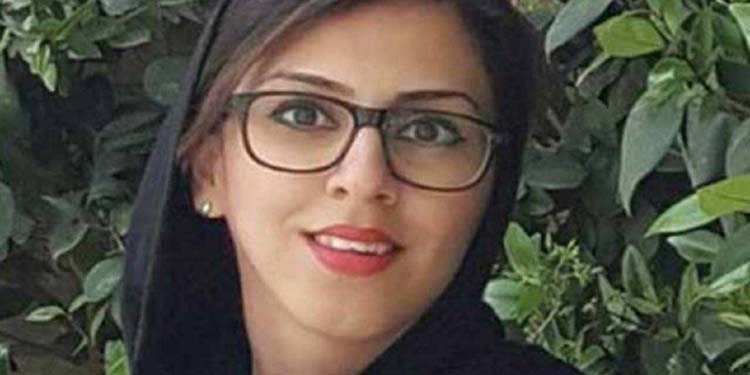Samin Ehsani, a follower of the Baha’i faith and child rights activist was arrested on Wednesday and transferred to Evin Prison to serve her sentence.
On July 2, 2011, Ms. Ehsani was sentenced by Branch 28 of the Revolutionary Court of Tehran to five years in prison on charges of “propaganda against the regime, acting against national security, and being a follower of the Baha’i faith.”
This sentence was later confirmed by the Tehran Court of Appeals.
Samin Ehsani went to the Evin Court on August 17, 2011, to resolve some issues regarding her passport and was arrested there.
Following her arrest, security forces searched her home and confiscated all of her personal belongings, including computers and religious items related to her faith.
The Baha’i citizen spent the first 11 days of her detention in solitary confinement in Ward 2A of Evin Prison and then in solitary confinement.
After a month of detention, she was temporarily released from prison on bail of 185 million Tomans until the end of the trial.
Samin Ehsani had previously provided educational support and held classes for Afghan children deprived education in Iran. Her activities in this regard were used in court to issue the verdict against her.
Iranian Bahais are systematically persecuted by the Iranian regime.
Recently a court in Iran has sentenced 26 followers of the Baha’i faith to prison terms ranging from two to five years, as well as other measures, on charges of “conspiracy to disrupt internal and external security.”
The verdict issued by the Revolutionary Court of the southern city of Shiraz is related to a series of arrests of Baha’is in Shiraz between July 2016 and December 2016.
Bahai persecution in Iran
Unofficial sources say that there are more than 300,000 people following the Bahai Faith in Iran. However, the Constitution of the Islamic Republic of Iran only recognizes Islam, Christianity, Judaism, and Zoroastrianism and does not recognize Bahaism.
Since the 1979 Islamic Revolution in Iran, Iranian Bahais have been systematically persecuted as a matter of government policy. During the first decade of this persecution, more than 200 of Iran’s Bahais were killed or executed. Hundreds more were tortured or imprisoned, and tens of thousands lost jobs, access to education, and other rights – all solely because of their religious belief.
The persecution of Iran’s Bahais is still ongoing with dozens of Bahais languishing in prisons throughout Iran.











